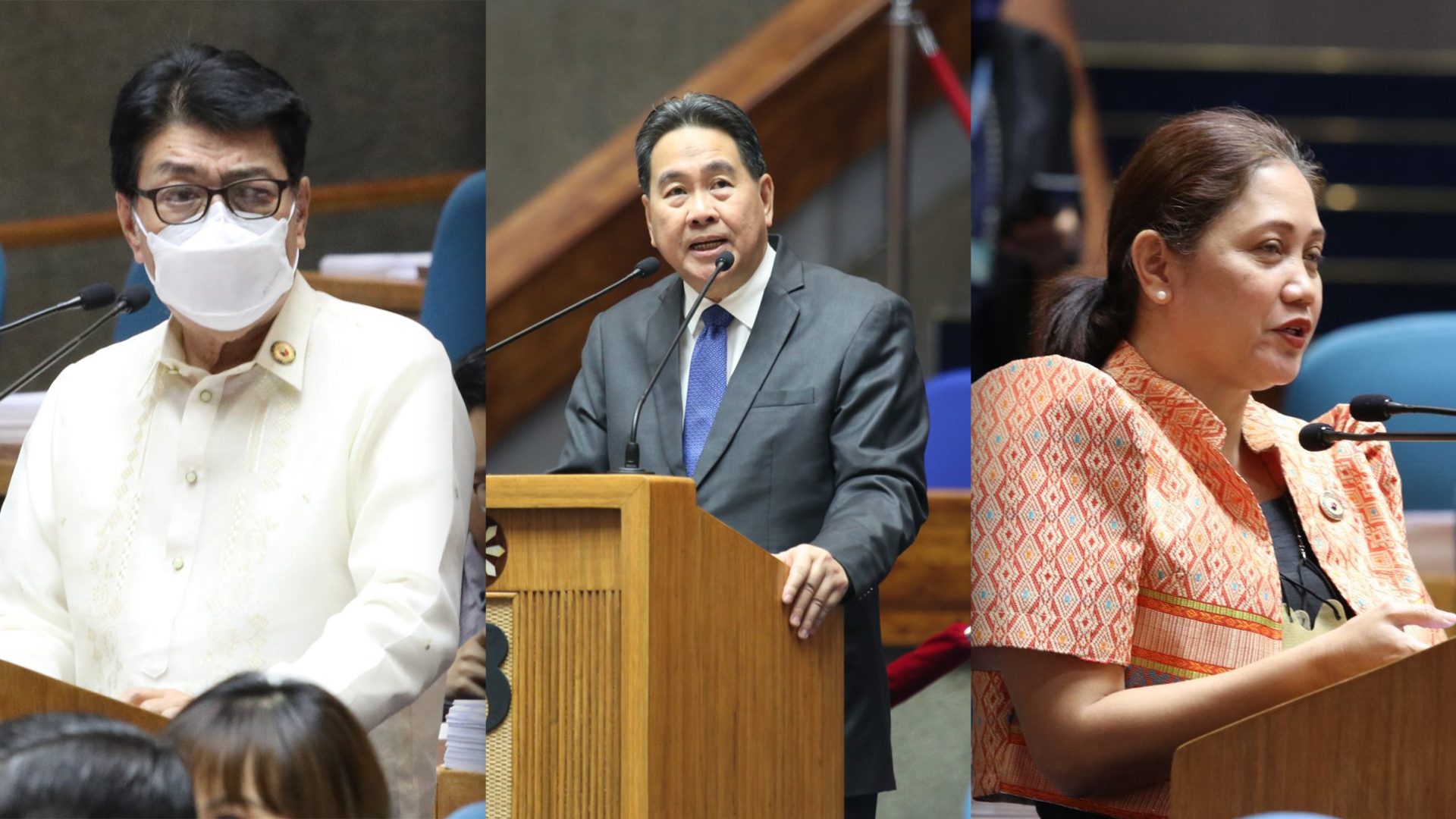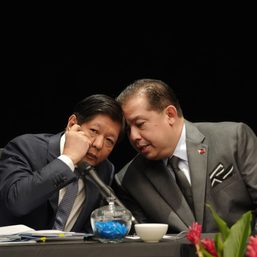SUMMARY
This is AI generated summarization, which may have errors. For context, always refer to the full article.

MANILA, Philippines – The House of Representatives under the Marcos administration took up in the plenary for the first time a committee-approved resolution, which seeks to call for a charter change through a constitutional convention.
Standing at the podium, House constitutional amendments committee chairman Rufus Rodriguez defended Resolution of Both Houses No. 6 from opposition lawmakers, who questioned the timing and necessity of amending or revising the 1987 Constitution now.
“The 1987 Philippine Constitution was ratified by the people through a plebiscite on February 2, 1987. It has been 36 years since its adoption and several developments in our society and the global arena happened,” Rodriguez said in his opening speech. “The passage of time and the present social and economic realities render its certain parts less responsive to our people’s needs.”
Economic amendments
Rodriguez put forward arguments that were repeated consistently throughout the seven public consultations held by his committee since January, particularly on how changes in the Constitution’s economic provisions would open the country to more investors.
“Despite the efforts of Congress to address the inimical economic situation of our country, the Philippines’ FDI (foreign direct investment) regulatory restrictiveness hampers the flow of much-needed foreign investments,” he said. “The Philippines is the most restrictive in terms of foreign equity capital, which are enshrined in the Constitution.” (READ: Where economists, analysts invited by the House stand on charter change bills)
He added that even though recent laws were passed to liberalize the economy, these measures were not enough.
“We should consider that the Constitution is the fundamental law of the land, and all laws must conform to it and not the other way around – meaning, not unless and until the constitutional restrictions are removed, the apprehensions and hesitancy on the part of the investors will consequently remain,” Rodriguez said.
Costly charter change
Camarines Sur 3rd District Representative Gabriel Bordado of the House minority is concerned about the expenses that a charter change would entail.
The National Economic and Development Authority previously said election exercises in connection with charter change via a constitutional convention could cost the government as high as P28 billion, should government choose to conduct a national election and a plebiscite separate from the barangay and Sangguniang Kabataan elections. The cost could be pulled down to P231 million if the polls will be conducted simultaneously with the BSKE.
“Would government have enough budget to hold such electoral exercises without sacrificing the priorities we should be focusing on?” Bordado asked.

But Rodriguez said that, based on his committee’s estimates, expenses could only be around P9.5 billion. The breakdown is: P1.5 billion for the election of delegates in October held simultaneously with the barangay polls, P5 billion for the needs of the constitutional convention, and P3 billion for the plebiscite to ratify the new charter.
“We can safely say it’s a wise expenditure of our country,” he said. “It cannot be business as usual. There are always issues like this. But if we don’t change the Constitution, it will remain as is and we will retain very high underemployment and underemployment rates.”
No political amendments?
Assistant Minority Leader Arlene Brosas, meanwhile, expressed concerns that should the constitutional convention push through, not only economic provisions in the 1987 charter would be subject to revisions.
“Would the sponsor agree that it would be unwarranted to entertain political provisions in the constitutional convention?” Brosas asked.
“There is a bit of possibility because that’s constituent power,” Rodriguez said. “But, in the proper time, we will be able to have in our resolution and bill that it will focus on economic amendments only.”
Different direction from Marcos?
President Ferdinand Marcos Jr. has said that charter change is not a priority, but Rodriguez’s committee finished public consultations on the subject in less than a month, and passed the resolution on Monday, February 20.
Albay 1st District Representative Edcel Lagman had even wondered if the President was just publicly distancing himself from the charter change push but has already secretly given lawmakers the go-signal to pass the measure.
Bordado quoted the President during his time to interpellate Rodriguez on the floor, but the latter stood by his committee’s decision to pursue charter change.
“We respect the executive, but I’m sure the President can also respect the House of Representatives and Congress. Our principle underlying our Constitution is the fact that we have three branches of government,” Rodriguez said.
Wednesday’s plenary session ended without an action yet on the resolution.
The lower chamber is adjourned until Monday, February 27.
Follow Rappler’s coverage of the charter change push in the 19th Congress:
- Padilla 1st non-lawyer to head Senate charter change panel since 1986
- House constitutional amendments panel chair revives Cha-Cha talks
- Not just term extension: A closer look at House bills on charter change
- Where economists, analysts invited by the House stand on charter change bills
- EXPLAINER: Is time ripe for economic charter change given the country’s woes?
- Term limits issue sparks debate during House charter change hearing
- Marcos: Charter change ‘not a priority’
- House to continue charter change talks even as Marcos says it’s not a priority
- Ex-chief justice warns ‘proxies’ of dynasties may comprise traditional con-con
– Rappler.com
Add a comment
How does this make you feel?





There are no comments yet. Add your comment to start the conversation.